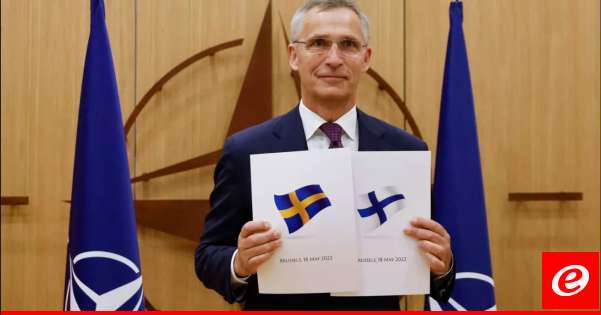Data from the military site Global Fire Power Index has shown that the entry of Sweden and Finland into the North Atlantic Treaty Organization “NATO” will strengthen the military potential of the alliance, as they are among the most modern European armies, while the two countries seek guarantees security from the most powerful military alliance in the world.
According to Axios, the Nordic countries will present unique opportunities to the most vulnerable Baltic region as the alliance struggles to demonstrate strength.
According to the report, Finland and Sweden will offer unique intelligence capabilities to match the threats posed by Russia, in addition to the vast capabilities of their navies and air forces.
The control of the Swedish armed forces over the island of Gotland in the Baltic Sea will also provide an important strategic advantage for NATO in the event of a regional conflict with Russia.
According to Axios, both Sweden and Finland have announced plans to significantly increase their military spending following the February 24 “Russian invasion” of Ukraine, after years of failing to reach its required 2 percent GDP threshold. from its members.
According to the Global Firepower Index, Sweden’s 2022 defense budget is estimated at $8.6 billion, while Finland’s defense budget is estimated at $6.3 billion.
The number of soldiers on active duty in the Finnish Defense Forces is 23,000, which is a “modest” figure, although Helsinki boasted of its ability to increase this number in wartime to 280,000 due to the mass conscription system in place there.
And 900,000 Finnish reservists could be mobilized due to heightened security concerns in a country that has an 800-mile border with Russia and has been invaded twice in the 20th century.
For their part, Sweden and Finland are seeking to join NATO in order to receive security guarantees from the most powerful military alliance in the world, despite the fact that experts confirm that they will not be independent under article (5).
The article states that “any attack or armed aggression against any member of NATO shall be considered an aggression against all of them, and accordingly they consent to the right of self-defence recognized in Article 51 of the Charter of the United Nations, individually or collectively and to support and assist the party or parties under attack.
The article adds that the support will consist of “immediately taking such measures as the Alliance deems necessary, in agreement with other parties, including the use of force of arms, to restore and maintain security in the North Atlantic region.”
And Article 5 of the treaty was activated only once in the alliance’s history, after the 9/11 attacks on the United States, when allied forces were deployed to Afghanistan, marking the first time that NATO forces were deployed outside of Alliance territory. alliance countries.
Source: El Nashra
